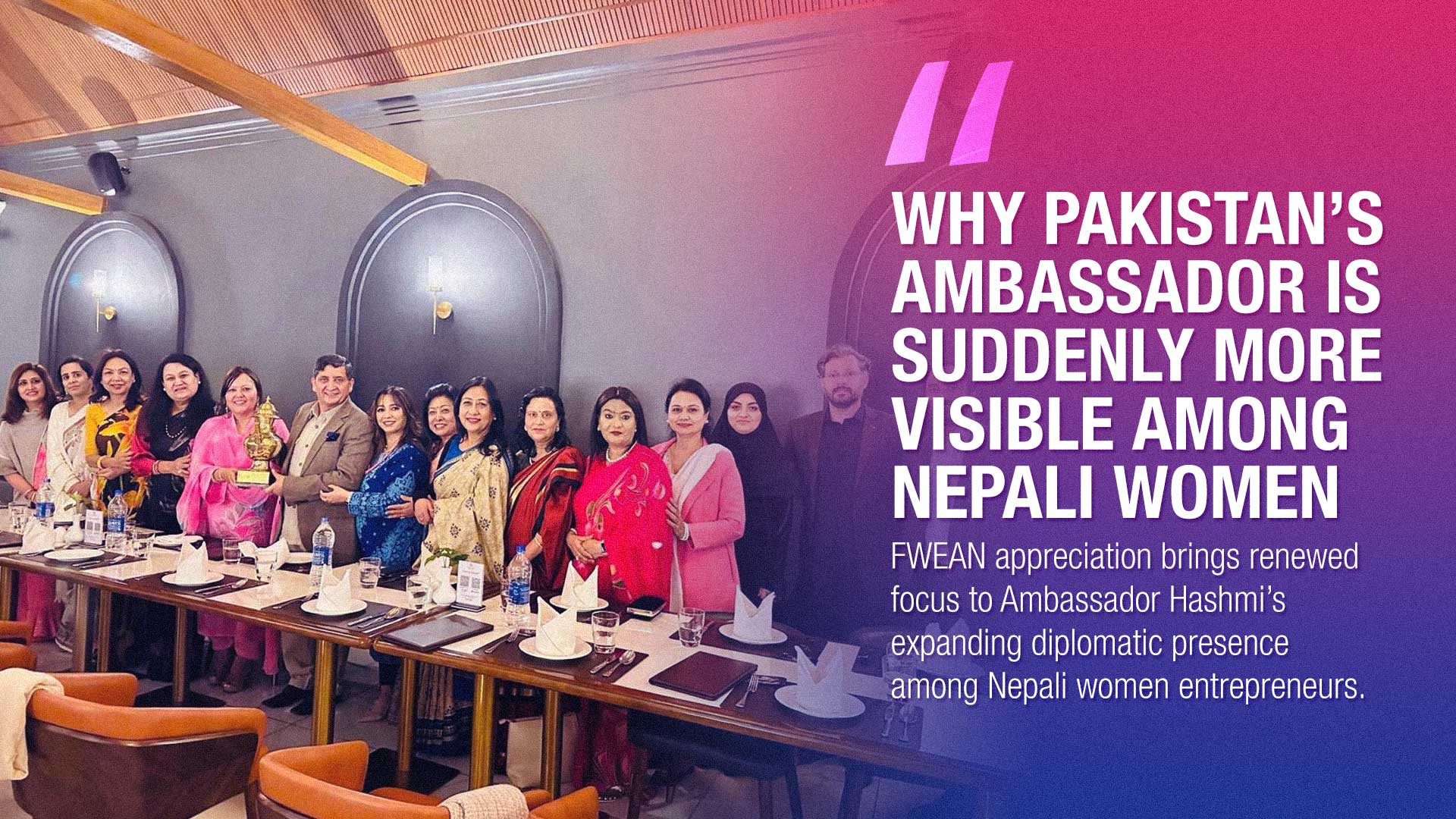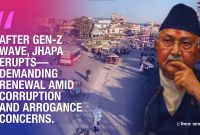Pakistani Ambassador’s Growing Influence Sparks Questions After Meetings With Nepali Women

After the special dinner hosted by the Embassy of Pakistan on 20 November 2025, the Federation of Woman Entrepreneurs’ Associations of Nepal (FWEAN) publicly expressed its appreciation toward the embassy, drawing renewed attention to the growing visibility of Pakistani Ambassador Abrar H. Hashmi within Nepali society. Based on the verifiable facts available, Ambassador Hashmi has been appearing more frequently in formal gatherings of Nepali women entrepreneurs, and recent interactions with groups representing Nepali women (“cheli–beti”) have taken on a social significance that extends beyond conventional diplomatic engagement.
Through its official social-media communication, FWEAN stated that the dinner strengthened the ongoing partnership between the two sides. According to the organization, FWEAN President Shova Gyawali presented a “token of love” to Ambassador Hashmi and expressed gratitude for the embassy’s continued guidance and support in advancing women-focused entrepreneurship in Nepal.

FWEAN further notes in its institutional records that the Embassy of Pakistan has consistently supported chapter expansions, national and international conclaves, and broader entrepreneurship-development initiatives. The organization has confirmed the presence of its full leadership team at the event, including Vice Presidents Darshana Shrestha, Sunita Vaidya Shrestha, Basanti Pradhan, and Mahalaxmi Shrestha, along with General Secretary Kunnam Pokharel, Secretary Sumitra Palanchoke, Treasurer Sabita Subedi, and Executive Director Abhilasha Poudel.
FWEAN has described the hospitality extended by Ambassador Hashmi and his spouse, Samiya Abrar, toward Nepal’s women-entrepreneurship community as commendable. The embassy’s public messaging also suggests an intention to continue diplomatic cooperation aimed at women’s economic empowerment in Nepal.
Meanwhile, social-media commentary in recent days has circulated claims that the ambassador is “increasingly visible among Nepali women,” though no official institution or authoritative source has verified such interpretations. Confirmed information remains limited strictly to the documented formal, diplomatic, and cooperative engagements between FWEAN and the Embassy of Pakistan.
As diplomatic presence begins to intersect more visibly with social spaces, questions naturally arise about the depth, intent, and long-term implications of such engagements. The distinction between institutional partnership and personal or social influence—particularly when framed under the banner of women’s empowerment—will likely remain an area of heightened public scrutiny in Nepal in the months ahead.
Pakistan



![From Kathmandu to the World: How Excel Students Are Winning Big [Admission Open]](https://www.nepalaaja.com/img/70194/medium/excel-college-info-eng-nep-2342.jpg)
